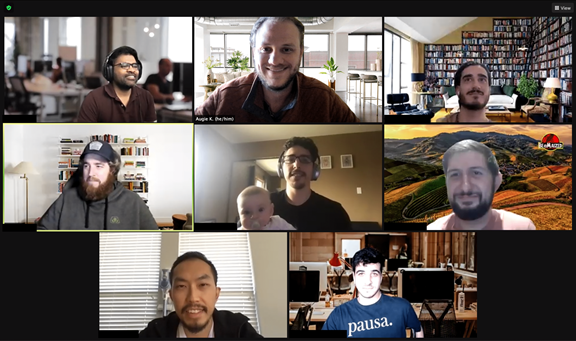What advice do you have for transitioning service members and veterans thinking about a career in technology?
One thing people don’t always realize is that there are many non-technical and semi-technical roles in the tech industry. You don’t just have to be a software engineer (although that is a great choice!), and you don’t have to do the same thing you did in the military. I would encourage transitioning service members to make a list of their personal and professional strengths and take the time to match those skills and interests to jobs and companies by perusing job postings, company websites, LinkedIn profiles, etc. There are jobs in tech for every strength and interest. I am not an engineer or a technician by background–I have a liberal arts degree and an MBA. I just wanted to combine my love for building things with my interest in functional and efficient digital experiences. Tech and coding have been a great way for me to pursue those interests professionally, and you need to find the field(s) that lets you pursue your own interests.
You should definitely be networking with people in industries and roles that interest you. Create a professional LinkedIn profile and send short, professional direct messages to veterans in jobs and industries that you like. Ask them if they have 10-15 minutes to talk on the phone about their career path and their transition out of the military. Many people will make time for you and you will learn a lot about their company and the industry they work within, and also about how to network like a civilian. Many big companies have whole teams dedicated to military and veteran recruiting; follow these recruiters on LinkedIn and keep an eye on their posts. The more familiar you get with different companies and roles, the more you’ll be able to target your search for the perfect opportunity, whether that’s a job, an education, or some other path. You can start by reaching out to me!
I also recommend that you learn as much as possible about your VA benefits. You may be surprised at what they cover, and there are ways that you can maximize your benefits, like understanding when the VA’s fiscal year starts and how to combine benefits with those from your state or your school. I used a VA program called VET TEC to fund my education at Code Platoon. Many of my classmates were still on active duty and using a program called DoD SkillBridge. Be sure to do some of your own research and networking to ensure you’re aware of the opportunities available and relevant to you.
The transition out of the military can be very difficult. The culture shock of reentering the civilian world and the balance between your strong military identity and your new civilian reality takes time to figure out. Here are a few government and nonprofit resources that I have found helpful and that I know others have used as well. Google them, join their webinars, contact them, and see what they have to offer: U.S. Department of Veterans Affairs, Service2School, Code Platoon, Road Home Program, Hiring Our Heroes (Kin + Carta does a HoH fellowship—read more here!), American Corporate Partners, your state and city VA departments (separate from national VA), not-for-profit colleges and universities in your area, and your fellow veterans.



